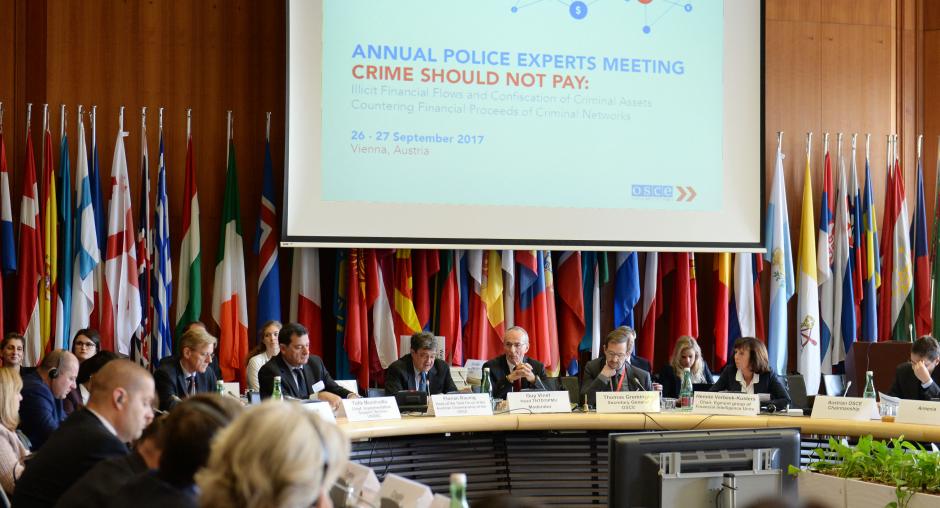Crime should not pay! Police experts discuss ways to disrupt criminal activities at annual OSCE meeting

Financial gain is the main incentive for most serious and organized crime networks, and stripping them of their proceeds is the most effective way to dismantle them. Yet according to Europol, only 1.2 per cent of illicit proceeds are confiscated in the European Union, leaving 98.8 per cent at the disposal of criminals. Why is only such a small fragment of crime proceeds confiscated? What can be done to strengthen criminal justice measures to recover illegal assets and disrupt criminal groups? These are the key questions addressed by participants in the 2017 OSCE Annual Police Experts Meeting entitled “Crime Should Not Pay” which started today in the Hofburg in Vienna.
“Bringing criminals to justice will always be a priority. However, in the long run we must also be better at drying up their money flow and recovering criminal proceeds. If we manage to take the gains away from criminals, we take away their main incentive for criminal activities. Without achieving this, we cannot disrupt and prevent organized crime successfully,” said Florian Raunig, Head of the Task Force of the Austrian OSCE Chairmanship, in his opening remarks.
Particularly insidious are criminal groups which invest their significant profits in the legitimate economy, ensuring business continuity for themselves and a further expansion of their criminal activities. “Fed into the legal financial system through money-laundering, crime-related profits can be used to spoil markets, corrupt politicians and the judiciary, or, as the case may be, finance terrorism. As a security organization we have a strong interest in changing this pattern,” said OSCE Secretary General Thomas Greminger.
The Annual Police Experts Meeting, which brought together law enforcement experts from OSCE participating States and Partners for Co-operation as well as representatives of other relevant international and regional organizations, is dedicated to assessing the scope of the problem of illicit financial flows and how to confiscate criminal assets, exploring international and regional co-operation mechanisms and sharing examples of real cases and operations where prosecution and law enforcement have been successful. The main findings and outcomes of the meeting will be compiled in a report, which will serve as a basis for further national, regional and international discussions and will provide guidance to the OSCE when delivering technical assistance to participating States.
OSCE Annual Police Experts Meetings have been held since they were inaugurated through a Ministerial Council Decision in 2001.
